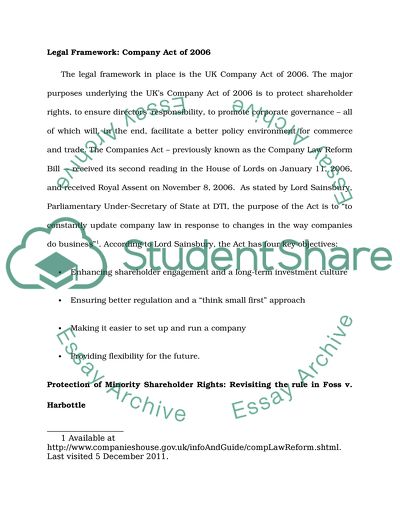Cite this document
(“The Company Act 2006: Promoting Corporate Governance and Protecting Assignment”, n.d.)
Retrieved from https://studentshare.org/law/1393194-the-company-act-2006-promoting-corporate-governance-and-protecting-minority-shareholders
Retrieved from https://studentshare.org/law/1393194-the-company-act-2006-promoting-corporate-governance-and-protecting-minority-shareholders
(The Company Act 2006: Promoting Corporate Governance and Protecting Assignment)
https://studentshare.org/law/1393194-the-company-act-2006-promoting-corporate-governance-and-protecting-minority-shareholders.
https://studentshare.org/law/1393194-the-company-act-2006-promoting-corporate-governance-and-protecting-minority-shareholders.
“The Company Act 2006: Promoting Corporate Governance and Protecting Assignment”, n.d. https://studentshare.org/law/1393194-the-company-act-2006-promoting-corporate-governance-and-protecting-minority-shareholders.


